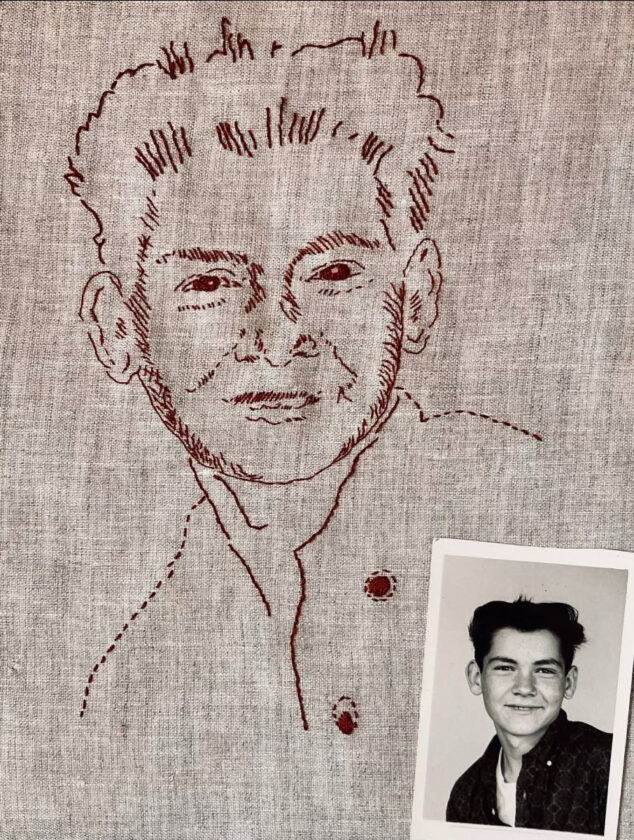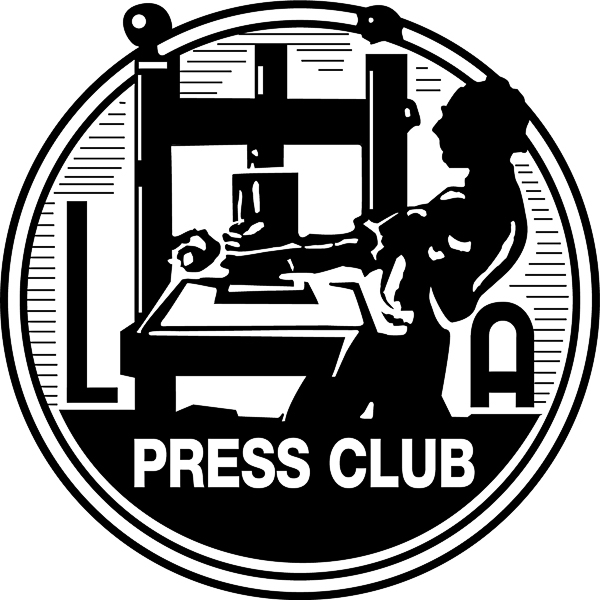This list is to assist journalists who are looking for legal help in California. The Los Angeles Press Club does NOT provide legal advice or legal services, which can only be done by a licensed member of the California Bar. Use their attorney search to verify license status and contact info or directory for a certified lawyer referral service (some can help in Spanish, Mandarin or other languages). We do not provide legal referrals, either. If not in California, contact your state or local Bar.
If applicable, always consult with your newsroom’s lawyer and/or management. While often aligned on press rights, your interests as an employee are not always the same as your employer’s. There may be circumstances where you should consult independently with your own lawyer.
Entities are listed alphabetically. Most have experience with First Amendment and press rights issues, but check directly to confirm services offered. Unless indicated, services are often pro bono (the attorney is free to you, but court fees may apply) for individual journalists or small/nonprofit newsrooms. Help may only be informational (not advice/representation) or contingent on acceptance of a case.
If you are concerned about reporting on a legally sensitive matter, the service you might be seeking is called a “prepublication review.”
Understand that pro bono resources can be limited, and even if accepted, the intake process can take days or weeks. Outside of business hours, only use emergency numbers for serious and immediate problems that cannot wait (ex: imminent arrest).
If you operate in the field and anticipate a high-risk situation (ex: civil unrest), write on your arm in pen the phone number of an attorney you are certain will be reachable when you need help. Always follow the law, yourself. Check out our tips for covering protests safely.
If you have information about a press rights violation, consider submitting it to the U.S. Press Freedom Tracker. Among other things, this helps journalism groups track and cite real-world examples while advocating for press rights. However, if you are facing any potential legal proceedings (criminal or civil), you should always consult with a lawyer before you share information about your case.
Updated December 2021. General questions/suggestions: pressrights [at] lapressclub.org
- ACLU of Southern California
ACLU-SoCal is interested in hearing from individuals about First Amendment concerns, issues impacting the press, and government access laws such as the Brown Act. They are especially interested in cases with broad impact, including where there are unsettled questions of law.
https://www.aclusocal.org/en/seeking-legal-help-aclu - Bolder Advocacy (from Alliance for Justice)
For nonprofits interested in lobbying or advocacy. Mainly useful for journalist associations fighting for press rights, who need to understand implications for 501(c)(3)s, 501(c)(4)s, and/or PACs status and public filing requirements. Informational only.
For free technical assistance, please call 866-NP-LOBBY (866-675-6229) or email advocacy [at] afj.org with your questions. They do their best to respond to inquiries within 2 business days. If your question is urgent, please flag it so it can be treated accordingly.
https://bolderadvocacy.org/ - Californians Aware (CalAware)
A nonprofit serving members of the public and the press regarding government access and press rights. Areas include: California Public Records Act, Brown Act, Bagley-Keene, Prior Restraints, Shield Law & Journalist Subpoenas, Reverse-CPRA cases, Court Access.
Website contains many explanatory resources on California’s public forum laws.
Can sometimes provide legal representation or assist with attorney referrals.
Contact Info: https://calaware.org; info [at] calaware.org; 916-949-4944 - California News Publishers Association (CNPA)
For members of CNPA (traditionally newsrooms, but freelancers can now join).
https://cnpa.com/legal-help/ - Electronic Frontier Foundation (EFF)
The leading nonprofit organization defending civil liberties in the digital world. Brings impact litigation on the forefront of law concerning new technologies. Accepts a small percentage of cases from people contacting the organization, and operates a legal referral service through a cooperating attorneys list. Website has significant informational resources, including Surveillance Self-Defense guide for journalists, how-to guides on encryption and securing device data, and subpoena defense guide.
https://www.eff.org/pages/legal-assistance - First Amendment Coalition (FAC)
Legal Hotline: For questions about access to public records and your right to attend government meetings in California; access to court documents and proceedings in California and federal courts; and First Amendment protections for freedom of speech and freedom of the press.
https://firstamendmentcoalition.org/legal-hotline/
If you are on deadline and need on the record comment about these topics or urgent help, email FAC [at] firstamendmentcoalition.org noting your deadline.
Subpoena Defense Initiative (journalist shield law enforcement): Journalists served with subpoenas or search warrants seeking unpublished information or information about anonymous sources can contact FAC to get connected to qualified pro bono counsel to represent you. The priority is serving independent and freelance journalists – those not already represented by newsroom counsel.
https://firstamendmentcoalition.org/subpoena-defense-initiative/
In an emergency (such as being served with legal papers), call Executive Director David Snyder on his cell phone: (510) 725-7373 and email FAC [at] firstamendmentcoalition.org, which is staffed nearly 24/7. - First Amendment Project (FAP)
FAP provides legal advice, assistance, and representation on free speech issues facing journalists, freelancers, documentary filmmakers, activists, nonprofits and general troublemakers. They do not handle religion cases. They specialize in Freedom of Information, Public Records, open meetings, and SLAPP suits (where people have been threatened or sued for speaking out). Of Counsel James Wheaton and Senior Counsel Paul Clifford have extensive experience handling anti-SLAPP matters in California.
https://www.thefirstamendment.org/ ; fap [at] thefirstamendment.org ; 510-208-7744 - Foundation for Individual Rights and Expression (FIRE)
FIRE’s principal focus is “on defending the freedoms of speech, expression, and conscience for all Americans.” They place a special emphasis on colleges and universities. Anyone can submit a case through their online intake form. Student journalists can also call a dedicated hotline listed on the same page.
https://www.thefire.org/submit-a-case - Institute for Nonprofit News (INN)
Offers assistance to member newsrooms through a variety of partnerships.
https://inn.org/resources/operations/legal-referrals/
https://archive.inn.org/project/legal-resources/ - Lawyers for Reporters
Lawyers for Reporters provides the full range of pro bono legal advice and representation that news and other reporting organizations need. Newsroom services include pre-publication review, newsgathering liability advice, subpoena defense, access litigation, defense of defamation actions, intellectual property licensing, and dispute resolution. Other services include corporate, real estate, employment, and taxation advice. Lawyers for Reporters specializes in advising clients regarding re-organization from for-profit to nonprofit status, fiscal sponsorship negotiations, and in establishing and managing sponsorship programs. In addition to direct legal services, the program provides training and capacity-building through collaboration with partner organizations and technical specialists.
https://lawyers4reporters.org/what-we-do-1 - Media Law Resource Center (MLRC)
MLRC provides a variety of resources and working groups, primarily to support other media-focused attorneys. While they don’t offer direct services to journalists, their Criminal Law Committee has a referral list of defense lawyers. You can contact individual attorneys near you for potential assistance if you’ve been arrested and/or are concerned about facing criminal charges.
https://medialaw.org/committee/criminal-law-committee/ - National Lawyers Guild of Los Angeles (NLG-LA)
NLG-LA’s Mass Defense Committee (MDC) can help if you’ve been arrested (i.e., criminal defense only) and have a court date at least two weeks away.
Intake form: https://form.jotform.com/211667108876060 - National Press Photographers Association (NPPA)
Informational resources for visual journalists: https://nppa.org/advocacy-resources
NPPA partnership with First Look Media’s Press Freedom Defense Fund: https://www.pressfreedomdefensefund.org/news/2020/6/4/pfdf-nppa-legal-advocacy-initiative
General Counsel Mickey Osterreicher: lawyer [at] nppa.org ; 716.340.2200 ext. 224 - New Media Rights
A program of California Western School of Law, for a number of digital-focused concerns like copyright and trademark issues, privacy policies, DMCA notices and content takedowns, CDA 230, and several more traditional concerns around First Amendment and related issues. Services may be pro bono, reduced fee, or competitive full fee.
https://www.newmediarights.org/bloggers_journalists
https://www.newmediarights.org/about_us/contact_us - Reporters Committee for Freedom of the Press (RCFP)
For journalists and media lawyers across a broad range of issues (excluding business matters like IP/copyright/trademark, labor/employment, contracts).
https://www.rcfp.org/legal-hotline/
After-hours emergency (ex: arrested or imminent arrest): 800-336-4243
ProJourn, a new initiative of RCFP, connects journalists in need of certain types of legal help with pro bono lawyers. The program is focused on 1) pre-publication review (vetting unpublished journalistic content for libel risk) and 2) accessing public records. If you aren’t sure if your needs fit this program’s criteria, you can contact the general RCFP legal hotline and they may refer you to the ProJourn intake form. - Society of Professional Journalists Legal Defense Fund
Offers grants to initiate and support litigation that enforces public access to government records and proceedings, and some related matters.
https://www.spj.org/ldf.asp - Student Press Law Center (SPLC)
Operates a media law hotline for student journalists and advisers. Also available to answer questions or provide comments to all journalists on student media-related issues.
https://splc.org/legalrequest/ - The Press Freedom Project at UC Irvine School of Law
The law clinic provides free legal support for independent journalists and photojournalists and non-profits.
https://ipat.law.uci.edu/press-freedom-and-transparency/



